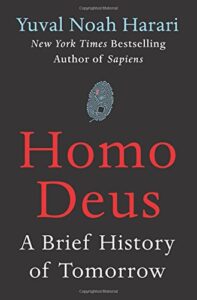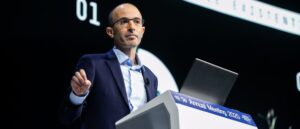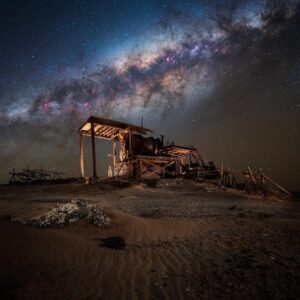More Enjoyable Than Depp vs. Heard. More Sinister than the Watergate Conspiracy. More Believable Than… Well, You’ll Either Believe It or You Won’t!
If you are a reader of any city paper whose name includes the word “Times” or a watcher of any news channel starting with a C, you may have heard nothing about the deposition of John Durham.

John Durham
Here’s the skinny.
John Durham is the special prosecutor chosen in 2020 to examine the FBI’s role in the four-year Congressional investigation into former President Trump’s involvement with Russia’s “interference” in the 2016 elections.
His testimony before the House Judiciary Committee is six hours of drama. And well worth watching. While the Democrat interrogators do their best to discredit Durham, he is remarkably calm and composed in responding to their accusations. He seems to be the trustworthy person without a political agenda that almost everyone agreed he was before he began his investigation.
The scope of the deposition is limited to what Durham found out about the involvement of the FBI. But along the way, all sorts of other things have come out. Like…
* The whole Russiagate investigation had its origin in the Steele Dossier, a document named for the primary source of the material in it that was damaging to Trump.
* Ironically, the Steele Dossier was, in part, Russian disinformation (in that Steele was a Russian agent). But its purpose was to bring down Trump, not Hilary Clinton. It was cooked up prior to 2016 by the Hillary Clinton election campaign to tarnish Trump’s credibility. Many of the facts in it were outright fabricated, and, other than some smaller “gotcha” violations on the part of a few Trump loyalists, there was no solid evidence to back up any of the claims.
* If Trump managed to get elected in 2016, the conspirators had a Plan B. It was to time-release bits and pieces of the dossier, as well as introduce other stories (such as that very weird bit about drinking urine) over the term of Trump’s administration to either get him impeached or, at least, undermine his presidency.
* The Russiagate conspiracy lasted four years and cost taxpayers tens of millions of dollars. Nothing came of it because 90% of the “evidence” it was based on turned out to be a document that the author admitted to having created out of whole cloth. And that was obviously known by the people at the top of the misinformation campaign from the very beginning. And certainly, by the time Adam Schiff was working 24/7 trying to make the allegations stick, most of the rest of Congress (including most Democrats) knew it for what it was. But Schiff continued lying to the very end, even after the NYT, CNN, and the other media that treated Russiagate like a genuine scandal had to concede that the whole thing was a big, embarrassing fraud.
* And if all that isn’t enough to give even the most dedicated Biden supporter some pause, it’s now known that the FBI was aiding and abetting the Russiagate conspirators throughout the entirety of Trump’s administration.
In 2020, after the Republicans took control of Congress, they formed a committee to investigate the Steele Dossier and the rest of the Russiagate probe. And for all that time, some very embarrassing (for Democrats) facts have been coming to light. But they were not reported by the mainstream media, so a discussion about the egregiousness and enormity of the story was never had on the public stage.
Thanks to Robert Mueller’s work, many of the facts of the story are out. And they are definitely, as I said, much scarier and crazier than the Watergate facts. But if you research the story today by starting with the Mueller Report, what you’ll find is that 90% of what is being published about it is calling the whole thing a big nothing-burger.
I’ve spent only so many hours looking into this. I’m sure there are facts I’ve missed and perhaps conclusions I’ve drawn that weren’t justified by the facts. Still, it’s difficult not to be stunned by how appalling this has been.
Here is Congresswoman Harriet Hageman talking about her own stunned emotions in sitting through all these revelations.
Of course, if you are a card-carrying member of The Holy Church of Trump Is Satan, you won’t be inclined to find any of this credible. But before you discard it completely, look at this summary of a three-year investigation into the reporting on Russiagate by Jeff Gerth, a Pulitzer-Prize winning NYT reporter.
Will any of this change anyone’s mind? If the Democrats retain the White House and the Senate, this whole amazing story of political corruption will be ignored until it’s forgotten. But even if the Republicans take both houses and the presidency in 2024, there’s no assurance that it will ever be exposed. Because to do that, you need a lot more than testimony and a few jail terms. You need a media that is willing to admit that they had it all wrong from step one.

 MarkFord
MarkFord













